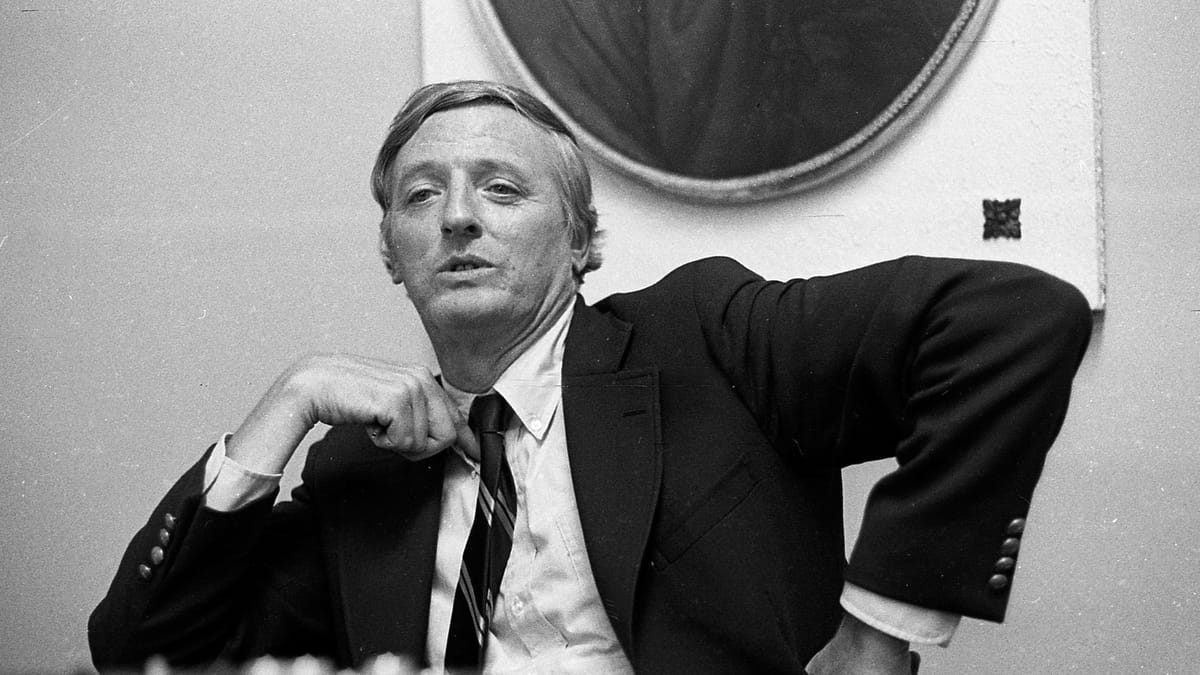nice assholes

In the very long break since I last wrote here, I've been reading a lot of books on assholes. I've even structured my introductory ethics class around not being an asshole, which answers the question that some (assholes) usually ask early on in an ethics class: why do I have to be ethical? The law doesn't require me to be ethical, and I might even be happier sometimes being unethical, and I can definitely make more money. I think the answer, somewhat seriously, is that if you're not ethical, then you're an asshole. It's not a perfect answer, and it not a formulation that Kant, say, would have used. (Kant–the man, not the theory–sounds like kind of an asshole himself, actually.) But that's what I'm going to write about more here to try to figure it out for myself.
I've been reading the new biography of William F. Buckley, Buckley: The Life and the Revolution that Changed America by Sam Tanenhaus. I'm not far along in the book. Buckley is still at Yale at this point in the story, so there's a lot of Buckley's life and interactions left to go. But one thought I've had so far was that he doesn't sound like an asshole, at least not in the way that I thought he would. Part of this is selective presentation and sympathetic writing, and someday I want to think more about the limits of presenting people sympathetically.
(I was about to write, jokingly, that someone could try to write a romantic film, Adolf and Eva; but a quick search shows that there is a film called "Adolf and Eva." Could it work? Or is this like the limits of morality in fiction, where you can tell a story in which ships go faster than light and lightsabers battle, but not one in which mass murder is morally permissible? Maybe you could at least tell enough of a story about some asshole to get to the "people are complicated" conclusion?)
Maybe I've misjudged Buckley from the beginning. The book is making me sympathetic towards him, or something between sympathy and pity. But maybe he's just not an asshole, or just not enough of one for me to think of him primarily that way. Just because his views are defended by assholes or he himself defends asshole positions doesn't mean that he's an asshole. He's an arrogant, know-it-all college student from a privileged background, but I was an arrogant, know-it-all college student who couldn't even justify thinking of myself that way because I'd been raised to think of myself as better than others. I came to it naturally. So which of us is the real asshole? (The answer could be "both," or the answer could be, "don't judge adults based on what they were like in college" unless they're still like that.)
What I was wondering though, at this point in the book, is what the limits are on how nice assholes can be. Obviously, you can be an asshole to some people and nice to others, and even the way that you're nice to some people can be a reflection of your being an asshole. You can be very nice to servers at a restaurant precisely because you think of yourself as so above them and think so little of their abilities that you view and treat them like children, which, if they don't misbehave, might make you especially nice to them.
The question is whether being an asshole is something that is pervasive enough as a personality that being nice is evidence that you're not actually an asshole. Checking on how others are feeling, for example, is compatible with being an asshole; but, if you're doing it often enough, it's good (not perfect, not infallible) evidence that you're not an asshole. Is being nice something like that? Or is it something like how a rapist or murderer might be nice because being nice says nothing about whether you've killed someone or had non-consensual sexual relations with someone--whatever relationship those two things have is weak enough that it couldn't be evidence.
Being an asshole isn't defined by a single thing that you've done, like rape or murder, and it does have to show up in your actions. If you're only an asshole "deep down" but always act like a good person, then you're (probably) not an asshole. ("Probably" because it depends on why you always act like a good person when, deep down, you're not. Are you acting nice to use people, which is what you really want? Or are you acting nice because you're trying to override your internal impulses?) But if the defining feature of being an asshole is taking oneself to be above the social norms and treating others accordingly, then maybe being nice is some kind of evidence that one isn't an asshole. To figure that out, though, I have to figure out what it means to be nice. (If you have to "figure out what it means to be nice," then you're probably an asshole.)


